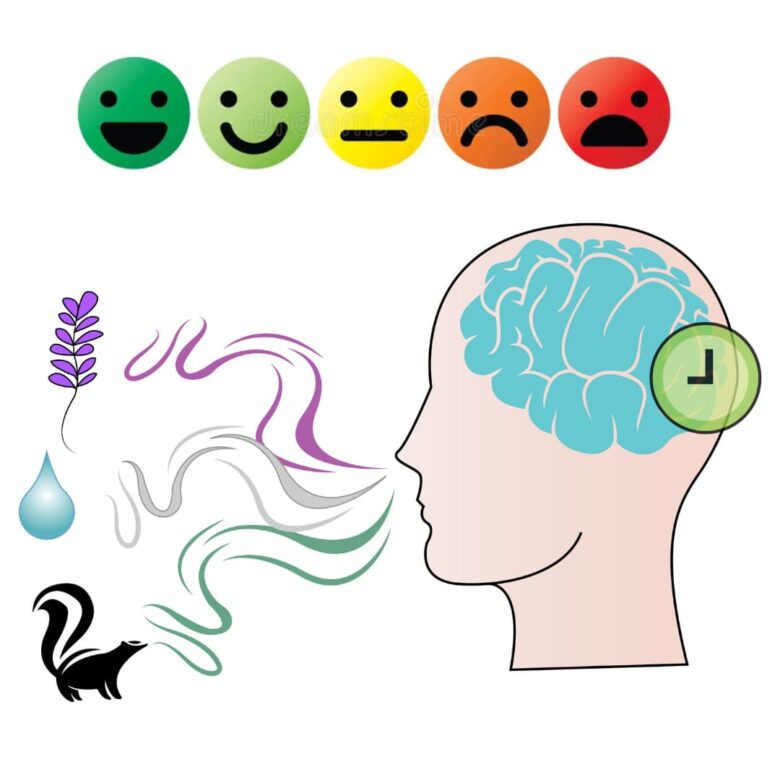Perfumes have long been known to evoke powerful emotional responses and shape the way we perceive the world around us. But what is it about scent that can have such a profound impact on our mood? In this article, we will explore the fascinating intersection between psychology and scent, and how perfumes can directly influence emotions, behavior, and overall well-being.
Understanding the Psychology of Scent
Scent is one of the most primal senses we possess, and it is closely linked to our emotional and psychological states. Unlike other senses, the olfactory system has direct connections to the limbic system, which is responsible for processing emotions, memories, and motivation. This is why smells have the ability to instantly trigger memories and emotional reactions.
When we encounter a particular fragrance, our brain registers it and connects it to past experiences or emotions, often before we even consciously realize it. For example, the scent of a particular flower may remind you of a childhood memory, while the smell of a perfume may evoke feelings of comfort, nostalgia, or even arousal.
The Olfactory System and Emotional Responses
The olfactory system is unique in its ability to influence emotions, as it bypasses the higher cognitive processes that other senses go through. This direct connection to the limbic system means that scents can have an almost instantaneous impact on mood. For instance, studies have shown that certain fragrances can trigger the release of dopamine—a neurotransmitter associated with pleasure and reward—leading to feelings of happiness and relaxation.
Perfumes with certain notes, such as lavender or chamomile, are known for their calming effects, while scents like citrus or peppermint can invigorate and energize. The emotional effects of fragrances can be both subtle and profound, making them a powerful tool for shaping our daily experiences and mental states.
How Perfumes Affect Your Mood and Well-being
1. Enhancing Relaxation and Reducing Stress
One of the most well-known benefits of certain perfumes is their ability to reduce stress and promote relaxation. Aromatherapy has been used for centuries as a natural remedy to ease anxiety and calm the mind. Essential oils such as lavender, bergamot, and sandalwood are commonly used in perfumes for their soothing and stress-relieving properties.
When applied to the skin or inhaled, these fragrances have the ability to lower levels of the stress hormone cortisol in the body, which can help reduce feelings of tension and anxiety. Studies have shown that people who use perfumes with calming scents report lower levels of stress, improved sleep quality, and a more balanced mood.
2. Boosting Confidence and Motivation
The right perfume can also boost self-confidence and enhance motivation. Floriental fragrances, which blend floral and spicy notes, have been shown to evoke feelings of empowerment and confidence. The complex combination of sweet, floral, and musky scents can make individuals feel more self-assured, assertive, and energized.
Similarly, perfumes with citrus notes, such as lemon or grapefruit, are known for their energizing and uplifting effects. These scents can improve concentration, elevate mood, and inspire action, making them perfect for those seeking motivation during long workdays or challenging situations.
3. Fostering Emotional Connections
Scent plays a significant role in forming emotional connections with others. Research has shown that perfumes can trigger positive feelings of attraction, affection, and love. Floral scents, particularly those with notes of rose or jasmine, are often associated with romance and intimacy.
When worn in social settings, these fragrances can make individuals feel more appealing and socially confident. The power of scent to create emotional connections is also evident in the fact that we often associate specific perfumes with people we care about. A perfume worn by a loved one can bring back fond memories and strengthen bonds.
The Science Behind Scent and Mood Regulation
The relationship between scent and mood is not just anecdotal; it is backed by science. Studies have demonstrated the profound effect that fragrances can have on the brain, particularly in terms of how they influence the release of neurotransmitters and hormones.
The Role of Neurotransmitters in Scent Perception
Neurotransmitters like serotonin, dopamine, and endorphins play a critical role in regulating mood and emotional states. Certain fragrances have been found to trigger the release of these “feel-good” chemicals in the brain. For instance, vanilla and chocolate scents have been shown to increase levels of serotonin, promoting feelings of happiness and contentment.
Conversely, unpleasant or overpowering scents can trigger a release of stress hormones, leading to feelings of irritation or discomfort. This is why people often choose perfumes that resonate with their desired emotional state, using scents to actively influence their mood.
Fragrance and Memory Formation
The connection between scent and memory is a well-documented phenomenon. The brain’s ability to store and recall memories tied to specific scents can influence emotions and mood regulation. For example, the scent of a particular perfume may remind someone of a cherished moment in their life, eliciting feelings of happiness or nostalgia.
This strong connection between olfaction and memory is often used in therapeutic settings, where patients are encouraged to use specific scents to help trigger positive memories or alleviate negative emotions. The use of fragrance in this way has shown promise in treating mood disorders such as depression and anxiety.
Perfume as a Mood-Altering Tool
Given the profound impact that fragrances can have on mood, it’s no surprise that perfume is often used as a tool for altering emotional states. Whether you’re looking to unwind after a long day, feel more confident in a social setting, or boost your energy levels, the right scent can have a powerful effect on your mood and well-being.
Choosing the Right Perfume for Your Desired Mood
When selecting a perfume, it’s important to consider the specific emotional response you want to elicit. Different fragrance families have different effects on the mind and body. For example:
- Citrus scents like lemon, lime, and grapefruit are uplifting and energizing, making them perfect for morning routines or when you need an extra burst of motivation.
- Floral perfumes, such as rose, jasmine, and lavender, are calming and promote relaxation, ideal for evening wear or moments when you want to wind down.
- Spicy or oriental scents, with notes like cinnamon, patchouli, and vanilla, evoke feelings of warmth, sensuality, and comfort.
Experimenting with different perfumes and identifying the emotional effects they have on you can help you make more informed choices when selecting fragrances to enhance your mood.
Scent and Its Impact on Daily Life
Incorporating fragrance into your daily routine can enhance your overall quality of life. Whether it’s through wearing a favorite perfume, using scented candles, or incorporating essential oils into your environment, scent can be a simple yet effective tool for mood enhancement. The psychological benefits of scent are vast, and harnessing them can significantly improve emotional well-being, productivity, and even social interactions.
The psychology of scent reveals the remarkable ways in which fragrances can shape our emotional experiences and influence our mood. From calming stress to boosting confidence, the right perfume can have a transformative effect on our mental and emotional state. Understanding the relationship between scent and mood regulation opens up a world of possibilities for using fragrance as a tool for emotional well-being and self-care.







Leave a Reply